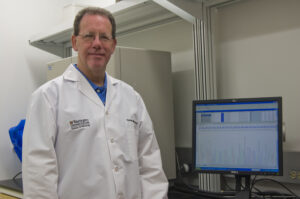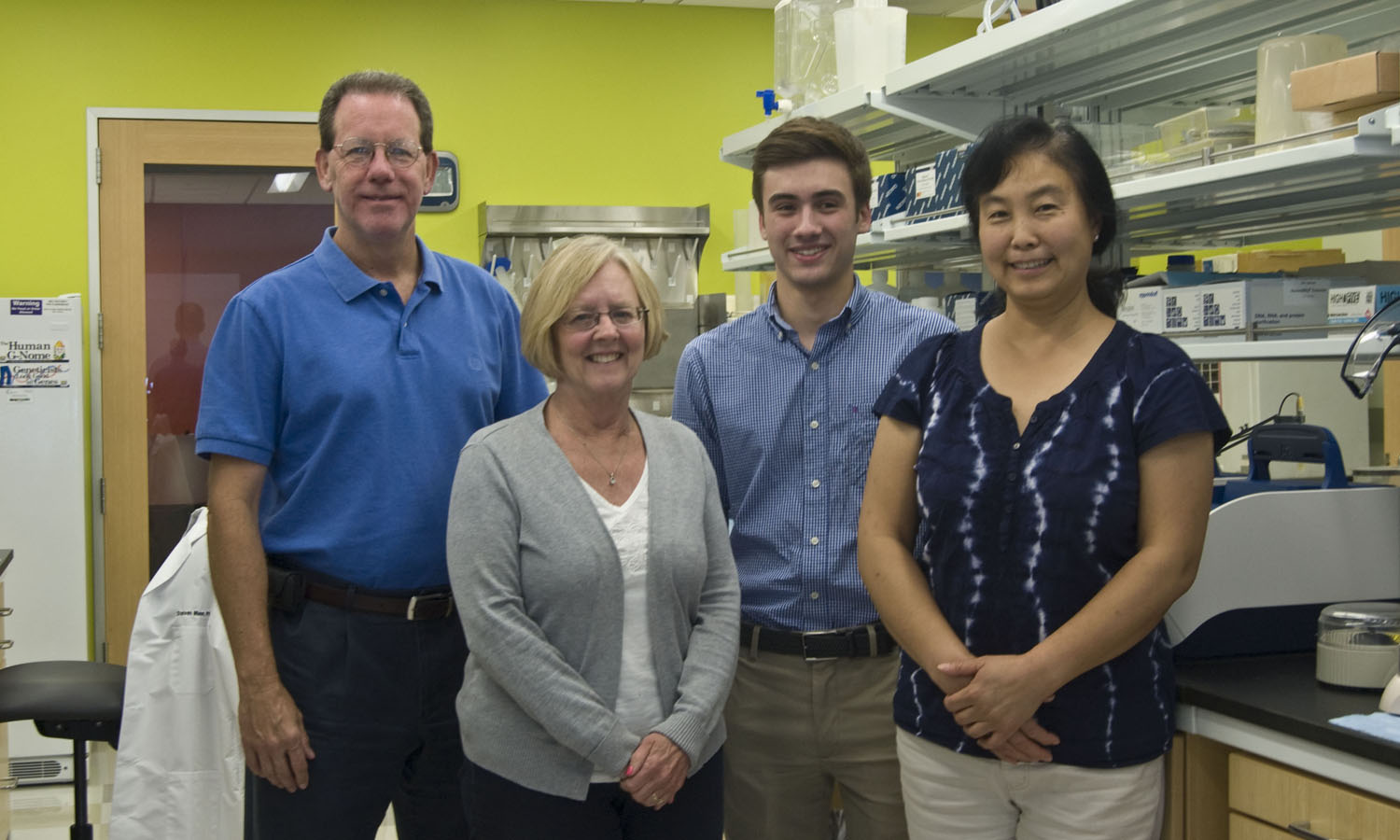Research focus
Rare Genetic Variants in Heritable Bone Diseases and Atypical Femoral Fractures

Our research focuses on the molecular genetics of metabolic bone diseases and skeletal dysplasias, with special emphasis on the patient population at the Center for Metabolic Bone Disease and Molecular Research, Shriners Hospitals for Children, St. Louis. Dr. Mumm has a long-standing collaboration with the Center’s Director, Michael Whyte, MD. As an extension of our interest in rare heritable bone diseases, we are also examining the role of rare genetic variants in predisposing to atypical femoral fractures in women using bisphosphonates for osteoporosis.
Current projects
The human skeleton is in a constant state of bone turnover. Mutations in genes encoding proteins involved in this highly regulated system result in diseases that either accelerate bone remodeling resulting in weak, misshapen bone, or inhibit bone remodeling resulting in high bone density diseases. We study families that span this spectrum of heritable bone disorders, identifying new genes/proteins involved in bone remodeling. This identifies new targets for therapeutic interventions, and helps elucidate the mechanisms that regulate bone turnover. While early studies focused on the RANK signaling pathway, we have now broadened our scope to include multiple pathways.
We have a long-standing interest in HPP caused by mutations in the ALPL gene, and XLH caused by genetic defects in the PHEX gene. Both of these genes and the coded proteins are involved in phosphate metabolism and bone mineralization. While disease severity and some phenotypic variation can be explained by specific mutations for each gene in the respective disorder, we have observed considerable phenotypic variation among patients with identical genetic defects. We are now investigating whether additional genetic defects or commonly occurring SNPs influence disease severity for HPP and XLH.
Recently, it has been reported that some women using bisphosphonates for osteoporosis have experienced atypical femoral fractures (AFFs). We have documented 2 such cases where the women carry missense mutations in the ALPL gene that have been reported in HPP. Therefore, we are sequencing a larger group of these women to see if they have mutations in ALPL, which may help explain these fractures. AFFs resemble fractures seen in the adult form of HPP. Further, we are now analyzing the whole exome to identify additional rare variants/mutations that may predispose to these debilitating fractures.
Publications
Lab members
- Shenghui Duan
- Sara Banze
- Jason Bell – Endocrine Fellow
- Patrick Finnegan
- Laura Galganski
- Michael Geimer
- Matan Gottesman – summer student participating in the Students and Teachers as Research Scientists (STARS) Program
- John Hagen
- Carma Hodge
- Margaret Huskey
- Jonathan Jones
- Ghada Otaify – Visiting Scientist from Cairo, Egypt
- Voraluch Phatarakijnirund – Visiting Scientist from Bangkok, Thailand
- Melissa Sum – Clinical Scientist Training and Research Progam
- Xiafang Zhang
